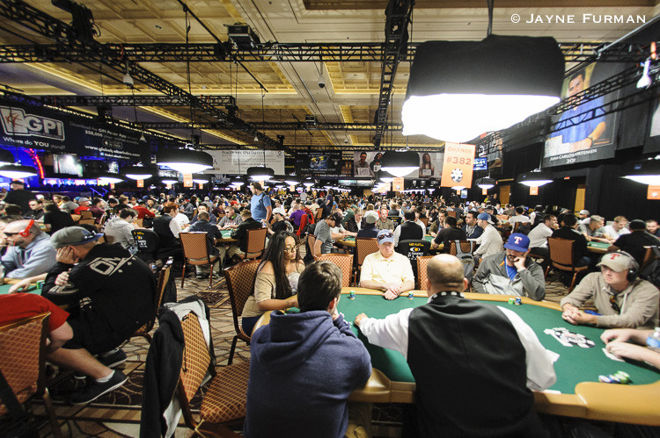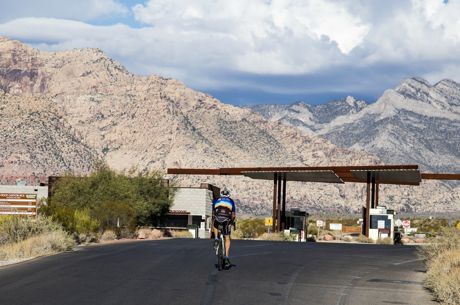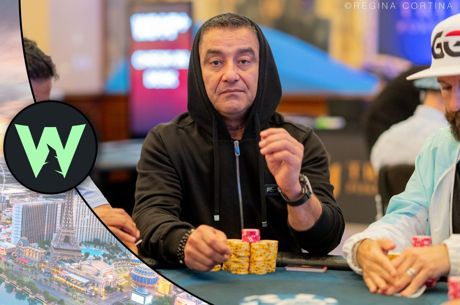WSOP 2017: Keys to Playing Your 'A-Game' During the Series

So you're planning to go out to Las Vegas to play in one (or more) of the many events at the World Series of Poker. You sure would like to do well. What can you do in advance to improve your chances of making the money?
Your ability to win at the WSOP will mostly come down to a combination of luck and the difference between your skill and the skill of those with whom you're competing. That is to say, to speak truthfully, preparation will have only a small effect on your results.
Even so, a small difference in your readiness to compete could be the difference between finishing in or out of the money — and it surely may make a difference in how deep into the money you get.
To that end, here's a list of eight keys to help prepare you to play your "A-game" when at the World Series this summer.
1. Get in shape physically
Many successful poker players are not in great physical shape. This is despite the fact that a long tournament can be physically exhausting and mentally draining. It can only help our stamina, concentration, alertness and mental acuity in general to be as physically fit as we can be when we play.
I recommend that if you are not already engaged in regular physical activity, that you at least start down that path immediately. Plan daily walks. Start with whatever you can manage now and then try to increase their duration, frequency and intensity as you get closer to leaving for Las Vegas.
If you start with a one-mile walk every other day, perhaps by the time you leave you'll be up to a light jog of three miles five days a week. I predict you'll feel better and will be more likely to play your best game for longer. But hey, even if I'm wrong and your game doesn't get any better, you'll still be in better shape — something that's worthwhile in and of itself.
2. Get in shape financially
Make sure to have your funds available and ready to use for your trip. Plan out all of your costs, taking into consideration meals, cabs, tips, partying, tournaments, cash games — everything. Leave yourself a cushion as well for unforeseen emergencies.
Set your limits, save some extra money and make sure that you are going out there without absolutely having to come back a winner. The more poker decisions are not clouded by "real life" money decisions, the better for your game.
3. Practice
There's the obvious sorts of practice you can pursue during these weeks leading up to the WSOP. Simply playing in some tournaments beforehand is a good idea, as that will help you get back into form and used to the rhythm of tournament poker.
It's also important to put some time in playing variants you might find yourself playing in Las Vegas that you don't typically play at home. For example, once before entering a S.H.O.E. tournament at the WSOP, I made sure to play a whole bunch of limit hold'em, Omaha hi-low, stud and stud hi-low to refamiliarize myself with those games.
There are other ways to sharpen your game as you ready for the summer. If you don't do so habitually already, during each hand practice counting down the pot and counting outs until it becomes second nature and habitual. Deliberately follow the betting action when you're out of a hand and see if you can accurately put players on hands (or narrow ranges of hands) before they reveal them in showdowns.
If you're not an expert, pick up any of a number of books on tells and learn a half-dozen or so that you didn't already know. If you plan on playing any stud events, practice your card memory by revealing and then concealing cards, then try to keep in your memory as many as possible. See if you can keep track of the rank of ten cards in a row, then twelve, then fifteen. Keep at it until you can keep track of fifteen effortlessly.
4. Engage in thoughtful poker discussion
If you don't already have one, join or assemble a group of like-minded serious poker players to discuss hands. It's best if these are people with whom you already play, but even if it's done online or over the phone, this kind of discussion can only help you when you face similar situations when you get to your WSOP tournament.
Don't know where to start? Just go online and join any of a number of poker discussion forums such as Two Plus Two.
5. Get ready mentally
Train yourself to think and play like a winning poker player. There are all sorts of poker training sites to visit, and the cost for joining is often minuscule when compared to the money you will risk at the table. If training videos don't do it for you, consider any of a number of the highly-rated poker books and poker magazines.
6. Get ready emotionally
Make a safe and distraction-free space for your poker adventure. Before you leave home, try your best to resolve or put aside the problems of your everyday life.
I realize that getting your entire house in order is often easier said than done. But to the extent that you can put other pressing needs on hold while you are competing, do so, so they won't be a distraction. If you're in a difficult relationship, see if you can arrange to check in after the event, rather than during it.
7. Get ready for the game itself
You're much more likely to play your best game if you're physically comfortable and have what you're likely to need at hand. Plan on wearing comfortable clothes — no one cares how you look, so dress for comfort not appearance. It also helps if you are well-hydrated and well-nourished while you are playing. Don't rely on the snack bar or restaurants at the Rio for food while you are competing. The lines can be long and the food not always satisfying. Bring your own collection of easy-to-eat snacks to maintain your energy and avoid hunger.
Examples of good snacks at the table are fresh fruit like bananas, sliced apples or grapes. Dried fruit is good, too, as are nuts, seeds, cheese or small chocolate bars. You should also bring a few bottles of water. Even though they'll be readily available from servers, having some with you will avoid delay and the distraction of finding someone.
If you're one to use chapstick, eye drops, gum and the like, make sure you bring those items to the table with you as well.
8. Eliminate excuses for an early exit
Most WSOP tournaments are three days in duration. You are most likely to play your A-game if you go into it to win it. Planning to win it means not planning to do anything else during the full three-day period of your event. That also means forgetting about all of the other tournaments or cash games you might end up playing if you bust out early.
It's all too easy to invent reasons for busting out — get rid of all of them. Don't schedule anything for three full days in a row. No dinner plans, no breakfast, no cash game, no meeting up with friends. No nothing! You want a completely empty slate for all of the scheduled days of an event. Later, if you do actually get eliminated, that's when you can make other plans.
Conclusion
There's no guarantee, of course, that if you focus on following these eight keys to playing your A-game that you'll win a bracelet this summer. But they should help you play your best, giving you your best chance to do well.
Ashley Adams has been playing poker for 50 years and writing about it since 2000. He is the author of hundreds of articles and two books, Winning 7-Card Stud (Kensington 2003) and Winning No-Limit Hold'em (Lighthouse 2012). He is also the host of poker radio show House of Cards. See www.houseofcardsradio.com for broadcast times, stations, and podcasts.








